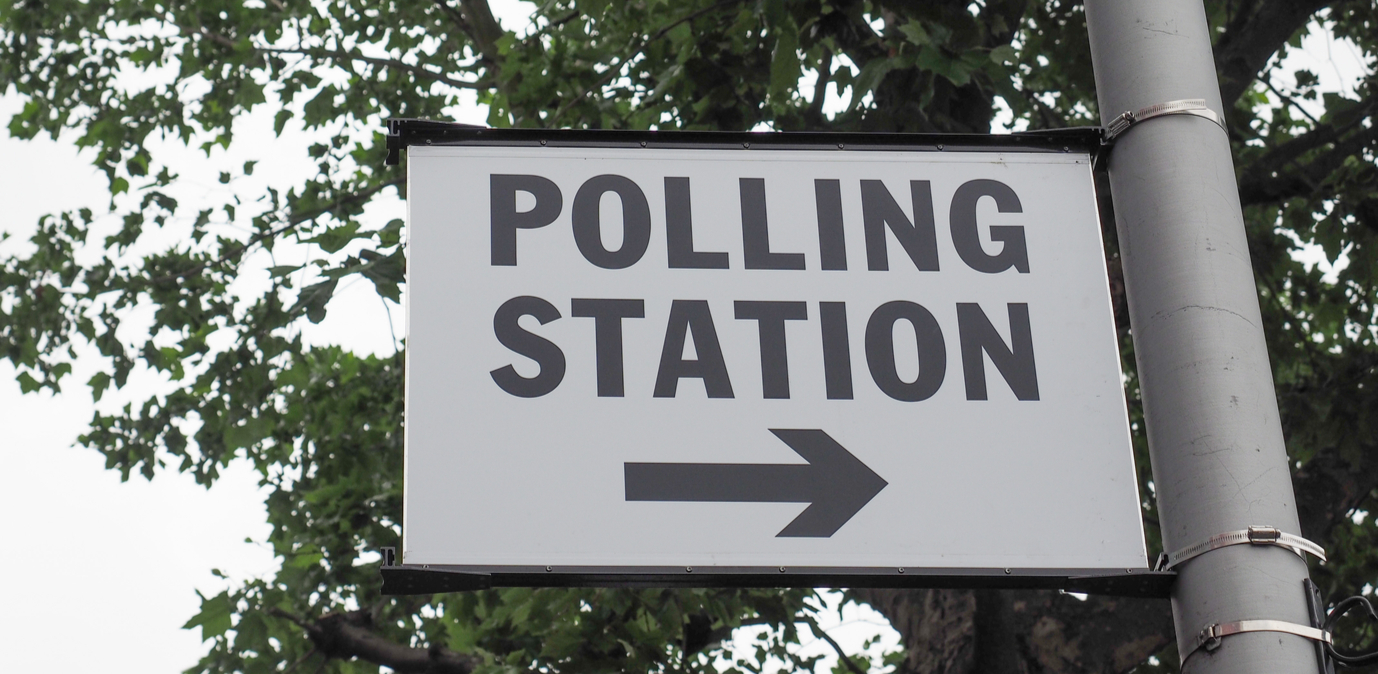UK General Election 2019: Business risks are substantial, whichever way you look
by Shomik Panda on 19 Nov 2019
The December 2019 General election will be the fourth election or referendum to take place in the UK in the past five years. Yet despite the unusual timing and general voter fatigue, the stage is set for a high-stake drama: voters are given a last chance to determine whether Brexit ‘gets done’ under UK Prime Minister Johnson’s (Conservative) terms or if a change in direction is warranted.
If Brexit has been all-consuming over the past few years and will have widespread ramifications for many more to come, this election undoubtedly matters for a number of reasons. For the first time in a generation, the two main political parties are running on significantly different domestic policy platforms, offering voters a genuine choice as to how they would like to see the UK governed in the next five years.
The Conservative Party is abandoning the fiscal restraint of previous administrations and planning a spending splurge on key infrastructure projects, including on schools, transport infrastructure, health and policing. The Labour Party, which has moved significantly leftward under the leadership of Jeremy Corbyn, would borrow and spend much more than the Conservatives and has pledged a number of radical policies that are likely to transform the UK business environment, adding another layer of anxiety for businesses that are already ‘priced in’ due to Brexit.
For UK businesses Brexit risk remains critical, but domestic regulatory risk is now also present
Businesses, who typically long for certainty and predictability, will head into this election unlikely to find the solutions they are after.
On the one hand the European policy of Labour-led government, which suggests a softer Brexit than that negotiated by the Conservatives followed by a referendum on such a deal, offers potential Brexit outcomes that may be more appealing to businesses than those bestowed upon them by a Conservative-led government. The Labour Party will also take a more flexible line on the length of any Brexit transition period and has also ruled out a ‘no-deal’ eventuality, which would remove two considerable sources of anxiety for businesses and allow more time for businesses to prepare for a new set of trading arrangements.
On the other hand, a Conservative-led government which prioritises bringing the Brexit impasse to an end, will likely stick to the deal that PM Johnson has negotiated with the EU, and a faster withdrawal timetable. Such a position would likely mean a tighter transition period to the end of 2020, with continued associated ‘no-deal’ risk of the UK leaving the EU at the end of 2020 without a future trade deal in place.
But the business community must also look beyond Brexit to consider whether the two main parties’ domestic business agendas need to be given an equivalent (or higher) level of scrutiny than their respective positions on Brexit.
The differing Labour and Conservative Party business agendas
While both of the main political parties are united in choosing to leave behind the politics of fiscal restraint in order to invest more, this is where the unity ends. Indeed, scratch beneath the surface and there is a significantly different approach to running the economy and regulating business that is on offer between the two main parties.
While the Conservative Party may not be running on such a distinctively pro-business platform as it has in the past, it will adopt a centre-ground pro-capitalist approach with infrastructure spending plans at the heart of plans to boost the economy.
Labour will look to be much more radical and implement a significant shift to a more statist economy governed by less orthodox economic theories. The Labour Party leadership is motivated to move towards a fairer society by radically redistributing income, assets and ownership to those that are less well off. Businesses will have to prepare for a new type of economy, where power shifts from shareholders and landlords to workers, consumers and tenants.
Public finances
Whichever party leads the next government, government borrowing will be much higher than it has been previously.
The Conservative Party is pledging to balance the current budget by the middle of the next Parliament. The Chancellor would limit borrowing for investment to 3 per cent of national income and aim to keep debt servicing costs below 6 per cent of tax revenues. Their rules would allow about £22bn of extra capital spending a year.
Labour’s fiscal rules are looser and would enable higher investment in infrastructure. They aim to balance the current budget too and will limit debt servicing costs to 10 per cent of tax revenues. Labour plans at least £55bn of additional capital spending a year.
Workers rights and employee ownership
One of the most radical of the Labour Party’s proposals is their worker ownership plan where companies would transfer 1 per cent of shares per year from shareholders to workers over 10 years. The plan would apply to public, private or foreign-owned companies with more than 250 staff. Workers would not entirely own the shares, rather they would be eligible for up to £500 a year each in dividends, while the remainder would go to the government.
A future Labour-led government would also look to significantly increase the minimum wage and make it easier for unions to go on strike. It would also look to extend full employee rights to all workers in the gig economy such as sick pay, parental leave and protection against unfair dismissal.
There are plans mooted for workers to sit on boards and for a 20:1 executive pay cap for companies with government contracts.
Other initiatives that have been discussed include a ban on all share options and golden handshakes; curbs on the voting rights of short-term shareholders; and the public naming of all workers on over £150,000 a year.
In addition, the Labour Party has also explored the idea of a universal basic income and is actively looking at the prospect of introducing a four-day working week.
Business rates
The Conservative Party has announced a review of business rates in England, with the aim of reducing the overall burden of the tax, as well as a cut in National Insurance contributions for employers, who already benefit from a reduction known as the employment allowance.
Taxation
The Conservative Party has stated that planned cuts to corporation tax from next April from 19% to 17% are to be put on hold. Labour's plan is to raise corporation tax to 26%.
On personal taxation, the Conservatives, who previously have suggested increasing the threshold at which workers pay 40 per cent income tax from £50,000 to £80,000 now look like they have little scope for tax cuts due to various spending commitments. Any tax cuts are likely to instead be targeted towards lower and middle-income earners rather than higher earners.
Labour has previously said it would lower the threshold for people paying 45 per cent tax from £150,000 to £80,000. It has also previously put forward the idea of a new 50 per cent rate for anyone earning above £123,000.
Labour has also suggested the idea of replacing inheritance tax with a lifetime gifts charge, introducing a new “excessive pay levy” and a new financial transactions tax. A recent report commissioned by the Labour leadership suggested that the current exemption from capital gains tax for homeowners could also be scrapped.
Housing
Shadow chancellor John McDonnell has said that he would like to see a “right to buy” scheme for private tenants in order to tackle the growth of the ‘buy to let’ market and to make it easier for renters to buy the homes they live in. He suggested the sum paid by tenants would not necessarily be the market price and that the government would set the criteria. He has also suggested higher taxes on landlords.
Green policies
On climate change, the previous Conservative government passed legislation making the UK the first major economy to commit to becoming carbon neutral by 2050. Labour’s autumn conference adopted a motion calling on the party to go further and fulfil this pledge by 2030.
The Conservatives have also followed Labour by pledging to ban fracking. Labour has said its ban will be permanent, whereas the Conservatives are open to fracking in the future if the industry provides greater assurances.
Labour has promised to “phase out” sales of new petrol and diesel cars by 2030. Labour would work towards its 2030 goal by offering interest-free loans of up to £5,000 for electric cars. It would also create a scrappage scheme for petrol and diesel cars over ten years old, giving their owners £2,000 towards an electric car.
Immigration and skills
The Conservatives have stated that the “vast majority” of migrants would need a job offer to come to Britain to work, regardless of where they are from. There would be a small number of exceptions, including high-skilled scientists and those who want to come to the country to start a business. The Conservatives have previously pledged to introduce an Australian-style points system to allow migrants to fill skills shortages. Points would be based on age, English literacy and work experience. New arrivals from the EU would no longer be able to claim benefits straight away but would have to wait, typically for five years.
Jeremy Corbyn has said that a Labour government would allow “a great deal of movement” but has not said whether freedom of movement would continue in its present form if Britain left the EU, despite a motion passed by the party’s conference which called on a Labour government to “maintain and extend free movement rights”.
Labour has also pledged to train about 320,000 apprentices in jobs such as construction, manufacturing and design within the renewable energy, transport and forestry sectors. This would be funded by diverting 25% of the funds that employers already set aside through the Apprenticeship Levy and topped up by any dividends over the cap paid into Labour's Inclusive Ownership Funds - the party's plan to give workers a 10% stake in their employers.
Conclusions
Labour’s plans are vast and potentially under reported as the media feeds the appetite of a nation transfixed by Brexit. It is in the areas of workers’ rights, employee ownership, and taxation that they particularly stand out. They have already announced plans to embark on large-scale borrowing to boost public investment; to nationalise key utilities; to transfer shares of large corporates to workers; to reform tenant rights; and to impose higher taxes on the rich. But they are also examining the potential for pay caps on executives, a four-day working week, and a “right to buy” for private tenants, as part of a radical manifesto that will offer the UK a genuine alternative to the centre ground politics of previous decades.
While some businesses will welcome plans for greater investment in infrastructure projects and an active and well-planned industrial strategy, this will have to be balanced with preparing for the wide-ranging potential impact of a Labour government on regulation, tax and red tape. Such sweeping reforms could lead to a heightened level of UK business uncertainty, especially when taken together with Brexit uncertainty.
So while Brexit will undoubtedly be the driver in most people’s minds come election day December 12th, businesses should start preparing for two eventualities: a radical Labour-led government with the promise of a closer relationship with Europe; or the more orthodox economic policies of a Conservative-led government, with more immediate Brexit risks attached.
UK businesses may be about to find out that planning for Brexit is no longer the only critical UK political risk that it has to prepare for.
Topics: UK politics, UK business






Comments